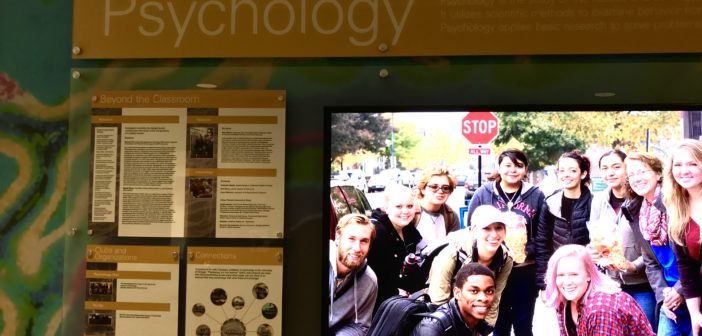Editor’s note: This story was reported on and written by students visiting from A. Vito Martinez Middle School in Romeoville, Ill.
North Central College science professors and students explain how science comes to life in television and movies.
“It depends what kind of media I’ve seen it in, it can be used correctly or incorrectly,” said Dr. Alexis Chambers, professor of neuroscience. Dr. Chambers spoke about the 2014 movie “Lucy” in which the main character is given a drug that allows her to utilize 100 percent of her brain capacity.
The film claims that humans use 10 percent of our brains, and that unlocking all of its capabilities grant her super-human powers. Dr. Chambers said that the movie was an inaccurate depiction of her field, because we do use all of our brain, but at different times and for different activities.
Bree Volpentesta, a psychology and human resources major, talked about the 2016 M. Night Shyamalan film “Split” and how it represented dissociative identity disorder. Volpentesta said that the film was, “maybe a bit unrealistic, but pretty accurate,” when it came to its treatment of psychology.
“General things are correct, but the timeframe is off so far it’s not even funny,” said biochemistry professor Dr. Nancy Peterson.
She said that shows like “CSI” portray science well, but not in the time that the show displays. For example, when it comes to DNA, it can be much more messy than how it seems on the show. Typically on crime TV shows, they are able to get easy answers from DNA samples, which in reality can be contaminated, said Dr. Peterson.
Even if it is not always perfectly represented in pop culture, it is a good thing that they are making science exciting.
Reporting by Austin Rivera, Aidan Povilaitis and Lukas Saltenis, sixth-graders from A. Vito Martinez Middle School.

